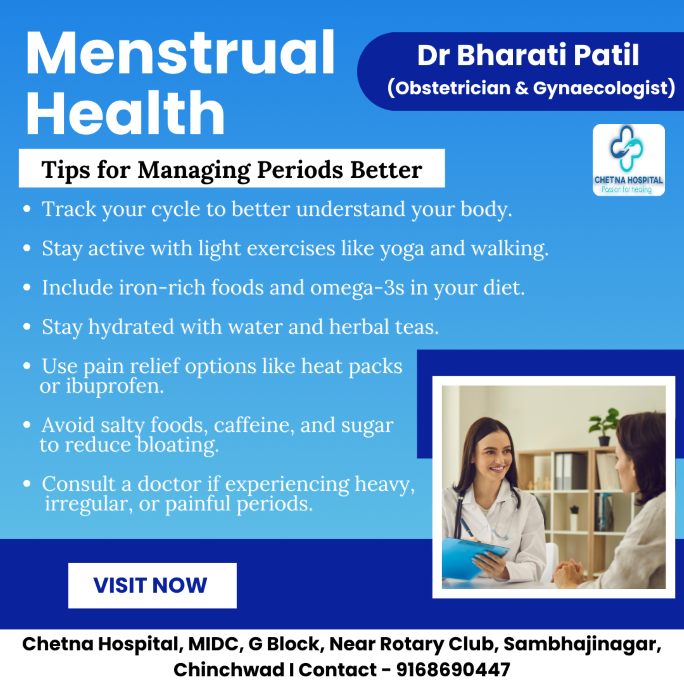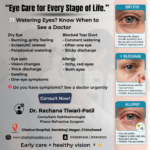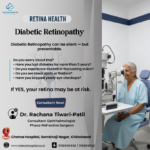Menstrual health plays a crucial role in the overall well-being of individuals who menstruate. Understanding your body, adopting the right strategies, and addressing period-related concerns can transform your menstrual experience from burdensome to empowering. This blog provides a comprehensive guide to managing periods better while prioritizing health and comfort.
Understanding Menstrual Health
What Is Menstrual Health?
Menstrual health encompasses physical, mental, and social well-being during menstruation. It involves having:
- Access to accurate information about the menstrual cycle.
- Proper sanitation facilities and supplies.
- A supportive environment that respects and acknowledges menstruation.
- The ability to seek medical advice when needed.
Phases of the Menstrual Cycle
Familiarity with the menstrual cycle helps in recognizing normal patterns and identifying abnormalities. The menstrual cycle consists of four phases:
- Menstrual Phase: Shedding of the uterine lining, typically lasting 3-7 days.
- Follicular Phase: Initiates on the first day of menstruation and involves ovarian follicles maturing.
- Ovulation: Mid-cycle release of an egg for potential fertilization.
- Luteal Phase: Preparation of the uterus for implantation; if fertilization doesn’t occur, menstruation begins anew.
Common Period-Related Challenges
Menstrual Pain
Menstrual cramps or dysmenorrhea affect a significant percentage of individuals. Pain is usually caused by uterine contractions and the release of prostaglandins.
Heavy Bleeding
Known as menorrhagia, heavy periods can lead to fatigue and anemia if left unmanaged.
Irregular Cycles
Hormonal imbalances, lifestyle factors, and certain health conditions can cause irregular periods.
PMS (Premenstrual Syndrome)
PMS encompasses physical and emotional symptoms such as bloating, mood swings, and fatigue in the days leading up to menstruation.
Tips for Managing Periods Better
1. Maintain a Menstrual Calendar
Tracking your periods can:
- Predict upcoming cycles.
- Identify irregular patterns.
- Help plan for travel or significant events.
Several mobile apps, like Clue and Flo, offer easy and efficient period tracking.
2. Choose the Right Menstrual Products
With advancements in menstrual hygiene, individuals now have various options to suit different needs:
- Sanitary Pads: Widely used and convenient.
- Tampons: Insertable and discreet, suitable for active individuals.
- Menstrual Cups: Reusable, eco-friendly, and cost-effective.
- Period Underwear: Absorbent undergarments for light to moderate flow.
- Cloth Pads: Washable and sustainable alternatives to disposable products.
Ensure that you change products every 4-6 hours to maintain hygiene and avoid infections.
3. Relieve Menstrual Pain Naturally
Cramps can be managed with:
- Heat Therapy: Applying a hot water bottle to the lower abdomen eases muscle tension.
- Exercise: Light activities like yoga or walking boost circulation and release endorphins, reducing pain.
- Herbal Teas: Chamomile, ginger, and peppermint tea can alleviate cramps and promote relaxation.
- Magnesium and Omega-3: These nutrients are known to reduce the intensity of period pain.
4. Manage Mood Swings and PMS Symptoms
- Eat Balanced Meals: Focus on fruits, vegetables, whole grains, and lean proteins.
- Hydrate: Reducing bloating and fatigue starts with adequate water intake.
- Mindfulness Practices: Techniques like meditation and deep breathing can stabilize mood fluctuations.
- Sleep Hygiene: Prioritize 7-9 hours of restful sleep to support hormonal balance.
5. Prevent and Address Period-Related Issues
Heavy Bleeding
- Monitor flow consistency.
- Seek medical advice for clotting or abnormally long cycles.
- Consider dietary iron supplementation under guidance to prevent anemia.
Irregular Cycles
- Maintain a consistent routine for sleep and physical activity.
- Consult a healthcare provider for persistent irregularities or missed periods.
Skin Health
Hormonal changes during menstruation often lead to acne. Prevent breakouts by:
- Cleansing skin gently.
- Avoiding harsh chemical treatments.
- Hydrating adequately and consuming omega-3-rich foods.
6. Prioritize Hygiene
Proper menstrual hygiene reduces the risk of infections and odors:
- Wash hands before and after changing menstrual products.
- Cleanse the vulva with water or mild, unscented soap. Avoid harsh washes that disrupt natural pH.
- Dispose of sanitary waste responsibly, adhering to local guidelines.
7. Educate Yourself and Others
- Understand your cycle and its nuances.
- Break stigma by initiating open conversations about menstruation.
- Advocate for menstrual health awareness and accessibility in your community.
Managing Menstrual Disorders
If you experience severe symptoms or disruptions, consulting a healthcare provider is essential. Common menstrual disorders include:
- Endometriosis: Painful periods due to uterine tissue growth outside the uterus.
- PCOS (Polycystic Ovary Syndrome): A hormonal disorder causing irregular periods and other symptoms.
- Fibroids: Non-cancerous growths in the uterus that may contribute to heavy bleeding.
Treatment Options
- Hormonal therapy to regulate cycles and alleviate symptoms.
- Non-steroidal anti-inflammatory drugs (NSAIDs) for pain relief.
- Surgical interventions when necessary, such as laparoscopy for endometriosis.
Breaking Period Stigma
Cultural taboos and misconceptions often hinder open discussions about menstruation. Combating stigma begins with:
- Educating younger generations about menstrual health in schools and homes.
- Creating inclusive spaces where all individuals feel safe discussing their experiences.
- Supporting initiatives to make menstrual products more accessible to underserved populations.
Conclusion
Menstrual health is a vital component of overall well-being that demands attention and care. By embracing education, self-care practices, and open conversations, individuals can manage their periods more effectively while challenging societal stigma. Whether it’s tracking cycles, choosing the right products, or seeking professional advice for abnormalities, taking control of menstrual health empowers you to live your life with confidence and comfort.
For Consultation Contact us on 9168690447
Website –
www.chetnahospital.co.in
Address – Chetna Hospital, Sambhajinagar, MIDC, G Block, Near Rotary Club, Chinchwad 411019
.
.
.
#hospital#pune#pcmc#chinchwad#health#healthcare#gynaecologist#femalegynaecologist#gynaecologistappointment#gynac#gynaecologistdoctor#gynaecologisthospital#goodgynaecologist#gynaecologistspecialist.













